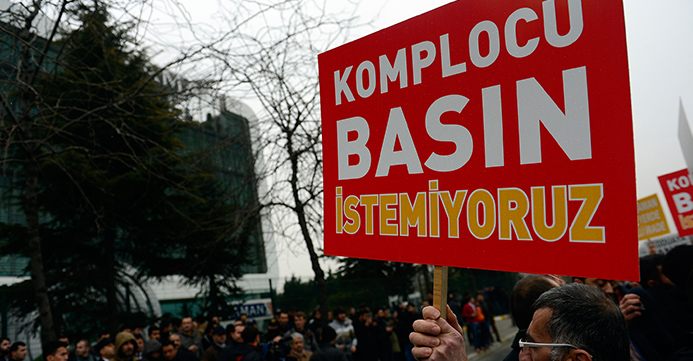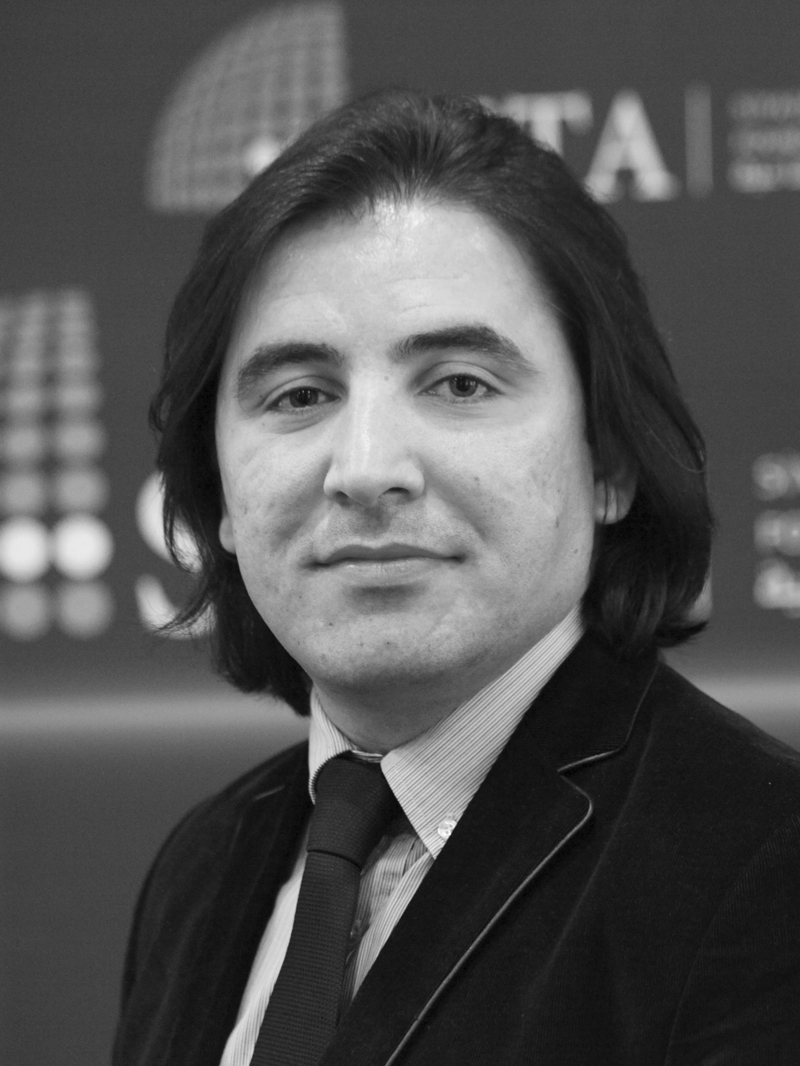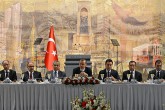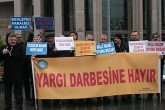“Parallel state”, “deep state”, and “parallel structure” are terms all too familiar to the Turkish public. This dual state structure was developed after the 1960 coup and further strengthened by the 1982 constitution. The division is composed of two components: The first is the elected, accountable, visible and civilian government; while the second, an unelected, unaccountable and invisible structure embedded in high bureaucracy with affiliates in media and big business.
Civilian governments have always been subordinate to this shady parallel structure, which has dictated the main agenda of the country and has the authority to have the last word on major issues. The democratisation process of the last decade with an active struggle against the tutelage system, was believed to have freed civilian politics from the chains of this parallel state.
Yet, the nature of recent developments in Turkey that culminated in the sensational graft probe of scores of people, including the sons of three cabinet ministers, a mayor from the governing Justice and Development Party (AKP), businessmen and the general manager of a public bank, Halk Bank, illustrates that old habits die hard in Turkey. In the last decade, while Turkey was busy dismantling the old parallel system, it seems that a new parallel system was emerging simultaneously.
The graft probe has two dimensions: judicial and political. While focusing only on the judicial aspect will culminate in losing sight of the bigger picture – political engineering; a sole focus on the political dimension will result in overlooking corruption, causing a loss of public trust in the government and tarnishing Turkey’s reputation.
Judicial aspect
Turkey has taken significant strides over the last decade in the direction of transparency and accountability. According to the Berlin-based Transparency International, which ranks countries based on their degree of transparency, accountability and fight against corruption, Turkey went from ranking 64 out of 102 countries in 2002, to 53 out of 177 countries in 2013. This upward mobility in the level of transparency and fight against corruption helped Turkey attract more foreign investment and increased investors’ confidence in Turkey’s public administration.
In order to continue with the upward mobility, the government should make sure that the judicial aspect of the probe is being duly conducted, and investors’ confidence and public conscience are satisfied. Any wrongdoers need to bear the consequences of their actions irrespective of their positions and political prominence. In this regard, last week’s replacement of three cabinet ministers, whose sons were detained as part of the probe, was a move in the right direction.
That said, however, focusing solely on the judicial aspect of the case or treating it as Turkey’s “clean hand” operation is tantamount to losing sight of the bigger picture. The graft probe is the latest altercation in a row that has been going on for the last couple of years between the Gulen Movement, a religious group headed by Islamic cleric Fethullah Gulen who has been residing in the US since 1999, and the governing AK Party (AKP). While the context in which this probe is taking place points to the “political” nature of the investigation, the way in which the investigation has been conducted reveals the existence of a “parallel state” in Turkey.
Political aspect
The series of events that culminated in the sensational graft probe mainly started with the debate over the closure of private tutoring schools. On different occasions, the AKP expressed its visions of transforming Turkey’s private tutoring system, believing that it puts unnecessary pressure on pupils and financial burdens on families in its current form.
Yet this vision hadn’t been delivered until November 2013, when Prime Minister Recep Tayyip Erdogan and the minister of education said that the government was working on a



